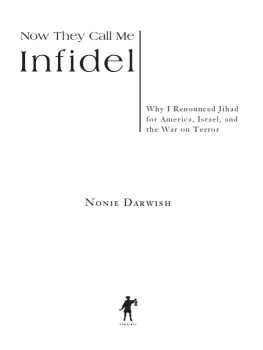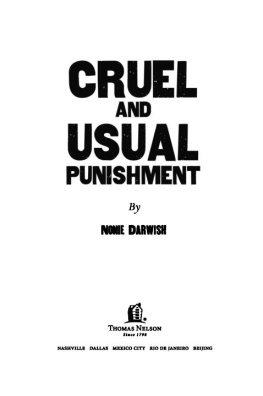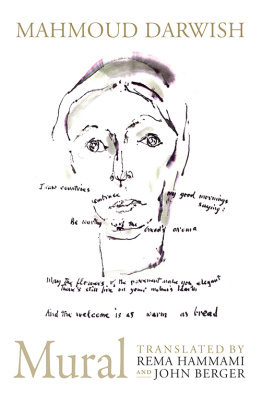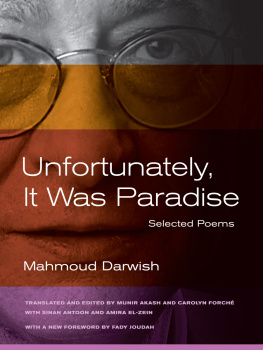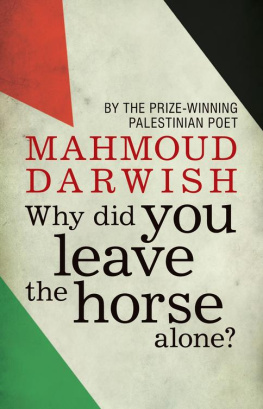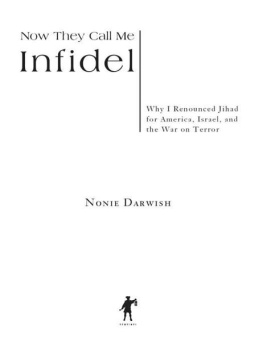
Originally published as Athar al-Farsha, by Riad El-Rayyes Books, Ltd. in Beirut in 2008
Copyright Mahmoud Darwish/Actes Sud, 2009
English translation copyright Catherine Cobham, 2009
First Archipelago Books Edition, 2009
All Rights Reserved. No part of this book may be reproduced or transmitted in any form without prior written permission of the publisher.
Library of Congress Cataloging-in-Publication Data
Darwish, Mahmud.
[Athar al-farashah. English]
A river dies of thirst : journals = Athar al-farasha : yawmiyyat / Mahmoud Darwish ; translated by Catherine Cobham.
p. cm.
ISBN 978-1-9357446-7-2
I. Cobham, Catherine. II. Title. III. Title: Athar al-farasha.
PJ7820.A7A8713 2009
892.71'6--dc222009012083
Archipelago Books
232 Third Street, Suite A111
Brooklyn, NY 11215
www.archipelagobooks.org
Distributed by Consortium Book Sales and Distribution
www.cbsd.com
Cover art: Les hiboux et les courbeaux from the Kalila wa Dimna reproduced with the permission of the Bibliothque Nationale de France
This publication was made possible with support from Lannan Foundation, the National Endowment for the Arts, and the New York State Council on the Arts, a state agency.

Contents
Acknowledgements
I am very grateful to Sabry Hafez for his invaluable help with the meanings and cultural contexts of a number of words and phrases. I would also like to thank John Burnside, Maudemarie Clark, David Cobham, Dina Frangi, Ronak Husni, Javier Letrn, and Tetz Rooke for their useful comments on specific linguistic, literary, or other cultural issues.
Responsibility for any mistakes and infelicities rests with me.
Catherine Cobham
St Andrews, 2009
A River Dies of Thirst
On the seashore is a girl, and the girl has a family
and the family has a house. And the house has two windows and a door
And in the sea is a warship having fun
catching promenaders on the seashore:
Four, five, seven
fall down on the sand. And the girl is saved for a while
because a hazy hand
a divine hand of some sort helps her, so she calls out: Father
Father! Lets go home, the sea is not for people like us!
Her father doesnt answer, laid out on his shadow
windward of the sunset
blood in the palm trees, blood in the clouds
Her voice carries her higher and further than
the seashore. She screams at night over the land
The echo has no echo
so she becomes the endless scream in the breaking news
which was no longer breaking news
when
the aircraft returned to bomb a house with two windows and a door.
The scene is the same as ever. Summer and sweat, and an imagination incapable of seeing beyond the horizon. And today is better than tomorrow. But the dead are whats new. Theyre born every day and when theyre trying to sleep death takes them away from their drowsiness into a sleep without dreams. Its not worth counting them. None of them asks for help from anyone. Voices search for words in the open country, and the echo comes back clearly, woundingly: Theres nobody here. But theres somebody who says: Its the killers right to defend the killer instinct, while the dead say belatedly: Its the victims right to defend his right to scream. The call to prayer rises to accompany the indistinguishable funerals: coffins hastily raised in the air, hastily buried no time to carry out the rites, more dead are arriving at speed from other raids, individually or in groups, or a whole family with no orphans or grieving parents left behind. The sky is leaden grey and the sea blue grey, but the colour of blood is hidden from the camera by swarms of green flies.
An autumnal summer on the hills is like a prose poem. The breeze is a gentle rhythm I feel but do not hear in the modest little trees, and the yellowish plants are peeling images, and eloquence provokes similes with its cunning verbs. The only celebration on these mountain paths is provided by the lively sparrows, who flit between sense and nonsense. Nature is a body divesting itself of trivial adornment until the figs, grapes and pomegranates ripen and the rain awakens forgotten desires. If it werent for my mysterious need for poetry, I wouldnt need anything, says the poet, whose enthusiasm has waned so his mistakes have become less frequent. He walks because the doctors have advised him to walk, with no particular goal, to train the heart in a kind of indifference necessary for good health. Any idea that occurs to him will be purely gratuitous. The summer only rarely lends itself to verse. The summer is a prose poem which takes no interest in the eagles circling high above.
I would yearn for nothing
no yesterday passing, no tomorrow to come
and my present neither advancing nor retreating
Nothing happening to me!
If only I were a stone I said Oh if only I were
some stone so that water would burnish me
green, yellow I would be placed in a room
like a sculpture, or exercises in sculpture
or material for the eruption of the necessary
from the folly of the unnecessary
If only I were a stone
so that I could yearn for something!
I sit in front of the television, since I cant do anything else. There, in front of the television, I discover my feelings and see whats happening to me. Smoke is rising from me and I reach out my severed hand to pick up my scattered limbs from many bodies, and I dont find them but I dont run away from them either because pain has such an attraction. I am besieged by land and air and sea and language. The last aircraft has taken off from Beirut airport and put me in front of the television to witness the rest of my death with millions of other viewers. Nothing proves that I exist when I think, as Descartes says, but rather when I am offered up in sacrifice, now, in Lebanon. I enter the television, I and the beast. I know the beast is stronger than me in the struggle between aircraft and bird. But I have become addicted, perhaps more than I should have, to the heroism of the metaphor: the beast has swallowed me but has not digested me. I have emerged unscathed more than once. My soul, which was confused in the belly of the beast, has inhabited another body, lighter and stronger. But now I dont know where I am: in front of the television or inside it. Whereas I can see my heart, rolling like a pine cone from a Lebanese mountain to Rafah!
I was there a month ago. I was there a year ago. I was always there as if I was never anywhere else. In 1982 the same thing happened to us as is happening now. We were besieged and killed and fought against the hell we encountered. The casualties/martyrs dont resemble one another. Each of them has a distinctive physique and distinctive features, different eyes and a different name and age. The killers are the ones who all look the same. They are one being, distributed over different pieces of hardware, pressing electronic buttons, killing and vanishing. He sees us but we dont see him, not because hes a ghost but because hes a steel mask on an idea he is featureless, eyeless, ageless and nameless. It is he who has chosen to have a single name: the enemy.
Whats going on in Neros mind as he watches Lebanon burn? His eyes wander ecstatically and he walks like someone dancing at a wedding: This madness is my madness, I know best, so let them set light to everything beyond my control. And the children have to learn to behave themselves and stop shouting when Im playing my tunes!
Next page

